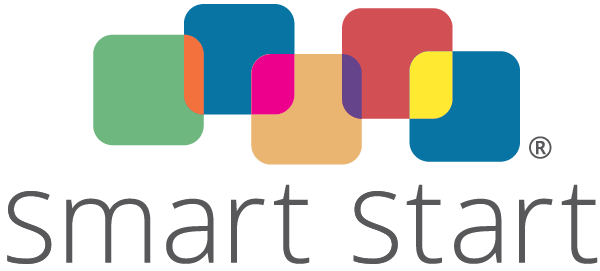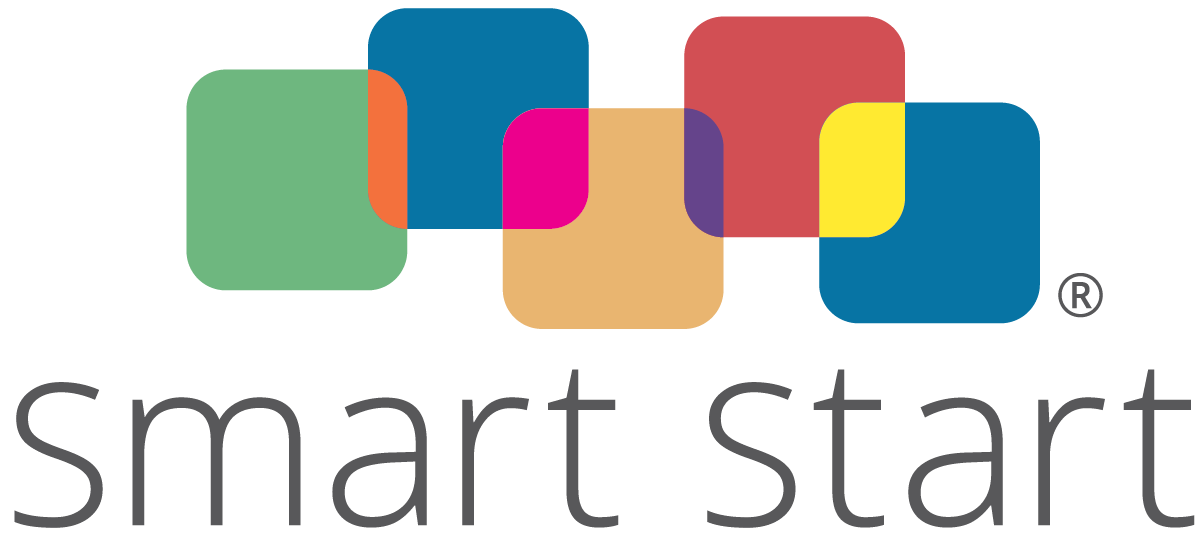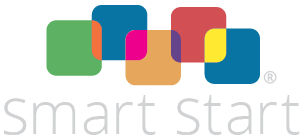Hurricane Helene Recovery Resources
INDIVIDUAL SUPPORT
State and county-specific resources:
Locating lost loved ones:
- Call 211 (1-888-892-1162) to report a missing person or request a welfare check, press 1 once you are connected to reach an operator. Have all information available (name, location, health conditions, etc.) to complete request. Call volumes are high, but operators are processing requests as quickly as possible.
- United Way Missing Person/ Welfare Check Request
- Email BuncombeSearch@gmail.com or call 828-820-2761 (Buncombe County Register of Deeds) to locate loved ones. Access the Buncombe Search Form directly at this link, https://forms.gle/eP5n5zGbFauWZoy39. You can directly enter the information about the person for whom you are looking.
- Call 1-800-RED-CROSS (1-800-733-2767) to locate people in their shelters or file a reunification request
Shelter and supplies:
- Ready NC Open Shelters List
- Call 2-1-1
- Call American Red Cross at 1-800-RED-CROSS (1-800-733-2767)
Power outage information: Ready NC Power Outages
Support for infant feeding during emergencies:
- How to prepare and store powdered infant formula
- Breastfeeding during a disaster and other emergencies
FEMA: Individual Assistance Program
FEMA is officially taking applications for the Individual Assistance Program which includes money for emergency housing at hotels, immediate recovery needs, and MORE. Homeowners and renters in Alexander, Alleghany, Ashe, Avery, Buncombe, Burke, Caldwell, Catawba, Clay, Cleveland, Gaston, Haywood, Henderson, Jackson, Lincoln, Macon, Madison, McDowell, Mitchell, Polk, Rutherford, Transylvania, Watauga, Wilkes and Yancey counties and the Eastern Band of Cherokee Indians can apply.
- There is a $750 benefit that is active and available IMMEDIATELY, as well as support for up to two weeks of stay in hotels. Please share this information to any and all who need it in the impacted areas.
- To apply: There are several ways to apply: Go online to DisasterAssistance.gov, use the FEMA App or call 800-621-3362 from 7 a.m. to 11 p.m. ET daily. The telephone line is open every day and help is available in most languages.
- Here is an accessible video on how to apply for FEMA Disaster Assistance.
- You will need the following information below when you apply:
- A current phone number where you can be contacted.
- Your address at the time of the disaster and the address where you are now staying.
- Your Social Security number.
- A general list of damage and losses.
- Banking information if you choose direct deposit.
- If insured, the policy number or the agent and/or the company name
- If you have homeowners, renters or flood insurance, you should file a claim as soon as possible. FEMA cannot duplicate benefits for losses covered by insurance. If your policy does not cover all your disaster expenses, you may be eligible for federal assistance.
- Tips for applying from the NC Department of Insurance
- Legal Aid of NC and Pisgah Legal are stepping up their disaster legal services programs to assist with FEMA applications and appeals, for homeowners and rentals facing damage and displacement, and to provide fraud support.
FEMA Financial Assistance for Child Care Expenses
The Federal Emergency Management Agency (FEMA) provides financial assistance to eligible households for child care expenses caused by disasters. This assistance is available through the Other Needs Assistance (ONA) provision of the Individuals and Households Program (IHP).
To qualify, households must meet the following criteria:
- Have children 13 and under, or children up to 21 with a disability that requires assistance with daily activities
- Be unable to pay for child care due to disaster-related increases in costs
FEMA will provide a one-time payment for up to eight weeks of child care, plus any eligible expenses. Eligible expenses include: standard child care service fees, registration fees, medical processing fees, and health inventory fees.
To apply for child care assistance, you’ll need to provide the following documentation:
- Proof of dependent and occupancy of your home
- Proof of pre- and post-disaster annual gross household income
- Pre-disaster receipts or an affidavit for child care expenses
- Post-disaster receipts or estimates for child care fees, registration, and/or health inventory fees
For disaster unemployment assistance: The benefits are available for residents of the following counties: Alexander, Alleghany, Ashe, Avery, Buncombe, Burke, Caldwell, Catawba, Clay, Cleveland, Gaston, Haywood, Henderson, Jackson, Lincoln, Macon, Madison, McDowell, Mitchell, Polk, Rutherford, Transylvania, Watauga, Wilkes, and Yancey Counties as well as the Eastern Band of Cherokee Indians of North Carolina. Additional counties may be added to the list of those eligible for DUA at a later date
People in the above-listed counties who are unemployed as a direct result of Hurricane Helene may be eligible for unemployment benefits under the program. Business owners and self-employed individuals affected by the storm may also qualify for benefits.
People in the 25 North Carolina counties as well as the Eastern Band of Cherokee Indians of North Carolina have 60 days from Oct. 1 to file an application for DUA at des.nc.gov. The deadline to apply is Dec. 2, 2024.
The funding is available in the 25 counties for weeks of unemployment effective Sept. 29 and may last for up to 26 weeks. Eligibility for the assistance is determined weekly, and you must continue to be out of work as a direct result of the disaster each week to get unemployment benefits.
Caring for your child in a disaster:
- Hurricanes & Floods: Taking Care of Your Children and Yourself from the American Academy of Pediatrics
- American Academy of Pediatrics Tips on Talking to a Child after a Disaster (youtube)
- How to Support Your Child’s Resilience in a Time of Crisis from the American Academy of Pediatrics
Mental health crisis counseling:
- Call or text 1-800-985-5990. This toll-free, multilingual, crisis support service is available 24/7 to all residents in the U.S. and its territories who are experiencing emotional distress related to natural or human-caused disasters.
- Español: Llama o envía un mensaje de texto 1-800-985-5990 presiona “2.”
- For Deaf and Hard of Hearing ASL Callers: Please text or call the Disaster Distress Helpline at 1-800-985-5990 using your preferred Relay provider.
Support for those with intellectual and developmental disabilities:
- If you are impacted by Hurricane Helene and need help, call or text The Disability and Disaster Hotline at 800-626-4959 or hotline@disasterstrategies.org
- The Partnership for Inclusive Disaster Strategies’ Hotline “provides information, referrals, guidance, technical assistance and resources to people with disabilities, families, allies, and organizations assisting disaster impacted individuals with disabilities and others seeking assistance with immediate and urgent disaster-related needs.”
For NC Medicaid flexibilities (including CAP/C and CAP/ DA) to ensure patients can receive medications, medically necessary services, etc.: https://medicaid.ncdhhs.gov/blog/2024/09/26/nc-medicaid-temporary-flexibilities-due-hurricane-helene
For TRICARE beneficiaries: Defense Health Agency temporary prescription refill waivers and emergency fills for NC beneficiaries: https://militaryrx.express-scripts.com/notices/weather/2024-sep-25/state-emergency-alert-hurricane-helene-north-carolina
To report damage and downed trees: Call local emergency management (click here for a list of contacts) to report damage and get help with issues like downed trees. Some are also assisting with wellness checks.
For cleanup support: Call Crisis Cleanup at 844-965-1386 to be connected with volunteer organizations who can assist with issues like trees, debris, tarps, and mucking out. Note: Crisis Cleanup cannot assist with social services such as food, clothing, shelter, insurance, or FEMA registration.
The Emergency Prescription Drug Assistance Program: The Emergency Prescription Drug Assistance Program helps people who live in a federally identified disaster area and who do not have health insurance access prescription drugs, vaccines, medical supplies, and equipment .Find out which pharmacy near you is open online with this map.
Disaster Distress Helpline:
- Crisis Text Line: If you need free mental health help, text TOUGH to 741741, available 24 hours a day, 7 days a week.
- Vibrant Emotional Health: For more information about DDH, call 1-800-985-5990 (press “2” for Spanish). 24/7 emotional and crisis assistance for survivors and responders of natural and man-made disasters, visit samhsa.gov/DDH. For any coordination needs or additional resources in emotional care in the event of a disaster, please emailDDH@vibrant.org.
BUSINESS AND NONPROFIT SUPPORT
Homeowners and Renters
- North Carolina homeowners and renters in 25 counties and the Eastern Band of Cherokee Indians who had uninsured damage or losses caused by Hurricane Helene may be eligible for FEMA disaster assistance. Learn more here.
- Survivors are encouraged to take pictures or videos of everything .
- Share these tips for navigating the app in a pre-written Facebook post.
- Legal Aid of NC and Pisgah Legal are stepping up their disaster legal services programs to assist with FEMA applications and appeals, for homeowners and rentals facing damage and displacement, and to provide fraud support.
General Restoration
Businesses Support
The U.S. Chamber Foundation’s National Disaster Help Desk can help businesses and organizations both in the impact area and looking to support the impact area. It can be reached at 888-MY-BIZ-HELP (or 888-692-4943). Additionally, they offer this online resource to help businesses take care of their employees’ needs, communicate the impact, address financial matters (e.g., insurance, disaster assistance), restore operations, and organize recovery.
- Home Disaster Loans: Loans to homeowners or renters to repair or replace disaster-damaged real estate and personal property, including automobiles.
- Business Physical Disaster Loans: Loans to businesses to repair or replace disaster-damaged property owned by the business, including real estate, inventories, supplies, machinery and equipment. Businesses of any size are eligible. Private, non-profit organizations such as charities, churches, private universities, etc., are also eligible.
- Economic Injury Disaster Loans (EIDL): Working capital loans to help small businesses, small agricultural cooperatives, small businesses engaged in aquaculture, and most private, non-profit organizations of all sizes meet their ordinary and necessary financial obligations that cannot be met as a direct result of the disaster. These loans are intended to assist through the disaster recovery period.
Farms and Agribusinesses
The N.C. Department of Agriculture and Consumer Services has activated its hotline to connect farmers with resources that can assist with damage and other agricultural emergencies related to the storm. The toll-free number is 1-866-645-9403. A live operator will be available on the hotline between 8 a.m. and 5 p.m. Farmers can also find recovery resources here.
- Cultures for mass feeding should be reportedto sert@ncvoad.org.
- “Hay for disasters” and other needs/offers can be coordinated throughhttps://www.ncagr.gov/emergency-programs/disaster-information or call 1-866-645-9403.
HOW TO SUPPORT THE WEST
Moving People, Resources, or Equipment
Until further notice, roads in Western NC (generally anywhere west of Hickory, NC) are closed to all traffic other than emergency services and pre-approved shipments coordinated through the N.C. Emergency Management Business Emergency Operations Center (NCEM-BEOC).
Therefore, if you plan to move people, resources, or equipment into western North Carolina, you MUST coordinate plans and movements through the NCEM-BEOC.
You can email your supply logistics or movement requests to: BEOC@ncdps.gov, make sure to begin your Subject Line with: Logistics Support.
Please include the following info:
- What are you moving? Why you need special access.
- When do you plan to move and from where?
- Where are you going?
- When will they arrive at the “border to Western NC” and where?
Volunteer
- Sign up as a shelter volunteer. “VolunteerNC is looking for volunteers to help serve our state with disaster services.” https://www.surveymonkey.com/r/DBF2JM9
- Sign up to answer calls to Crisis Cleanup hotline. “English and Spanish volunteers ARE DESPERATELY needed for our hotline. Info is located here: https://tinyurl.com/ms3nmw53
- Serving large numbers. For organizations with large numbers of volunteers or supplies, such as feeding 1,000+ people daily, contact NC Voluntary Organizations Active in Disaster at sert@ncvoad.org or make an offer on https://volunteernc.app.needslist.co/.
- Join volunteer and donation response coordination call sdaily at 12:30 p.m. (time may change) hosted by NC Voluntary Organizations Active in Disaster. Simultaneous Spanish-English interpretation is available . On Zoom at https://zoom.us/j/96954774349?pwd=b4HofOoZZ8NekO7dVsLRb8kp4Ye4pz.1, or call 646-931-3860, Meeting ID: 96954774349, Password: 744752.
- NCVOAD is creating committees to make action-oriented calls. Sign up for https://www.ncvoad.org/join-a-committee/
- Contact the Hispanic Federation to support Latino-led and Latino-serving organizations. Contact Lariza Garzón:lgarzon@hispanicfederation.org.
- Join volunteer and donations response coordination calls daily at 12:30 PM (time may change) hosted by NC Voluntary Organizations Active in Disaster. Simultaneous Spanish-English interpretation is available. On Zoom at https://zoom.us/j/96954774349?pwd=b4HofOoZZ8NekO7dVsLRb8kp4Ye4pz.1, or call 646-931-3860, Meeting ID: 96954774349, Password: 744752.
INFORMATION SOURCES
- The North Carolina Department of Public Safety is posting information about road conditions, shelters, food assistance and other storm information.
- Individuals seeking assistance in their communities may call 2-1-1 to be connected to available resources, including help with housing and shelter, utilities, healthcare, food, clothing and household goods, etc. Additional information is available here.
- The North Carolina Voluntary Organizations Active in Disaster organizes volunteers and resources ahead of disasters. The VOAD’s role is to bring organizations together and enable them to understand each other and work together during times of disaster preparedness, response, relief and recovery
- Ready NC is posting information about efforts to recover and rebuild after recent storms.
- News in Spanish: Latin Link, Blue Ridge Public Radio ,ReadyNC.gov(“Select Language”), and FEMA. For news coverage in Espanol use the following links:









